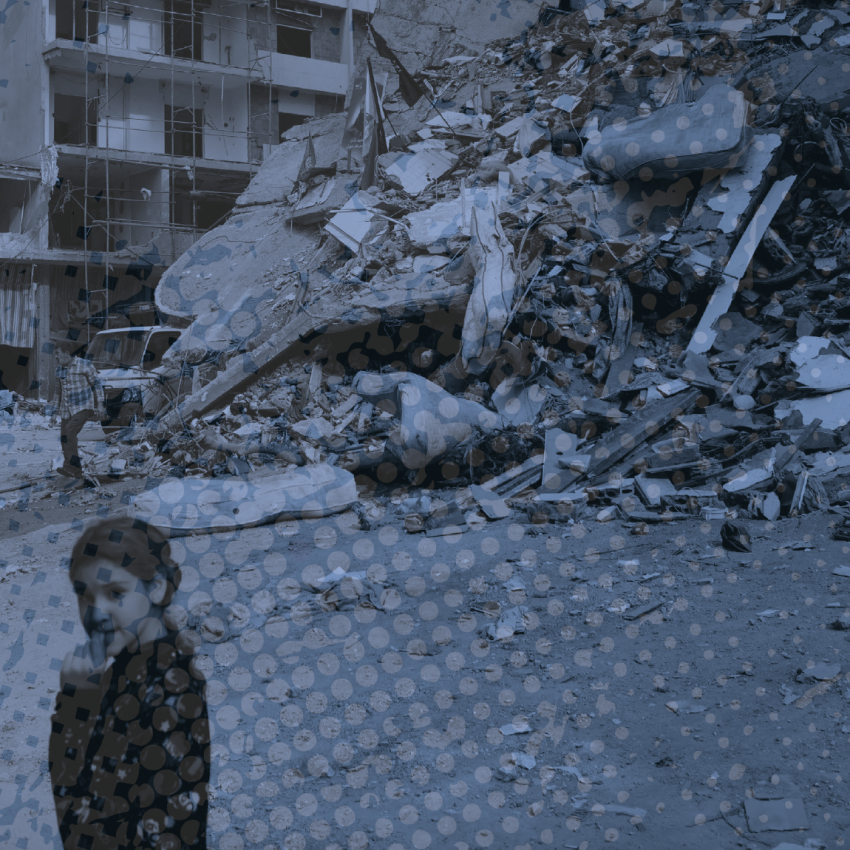White Paper on Journalists’ Safety
Between September and November 2024, Lebanon experienced one of the most violent chapters in its recent history during the war between Israel and Hezbollah. This period coincided with deepening sectarian divides, a surge in hate speech and disinformation, and intensifying instability across Lebanon, Palestine, and Syria.
Journalists and media workers found themselves performing two impossible tasks: (1) delivering facts from the ground in real time, and (2) trying to remain safe – or at least alive – while doing so. At least 13 journalists and media workers were killed under Israeli fire in Lebanon alone; dozens more were displaced, injured, or suffered devastating material losses.
Journalists in the region are targeted both by Israeli military strikes and by local despots and factions determined to silence independent voices.
In this context, reassessing the safety of journalists, both physical and digital, is an urgent priority. This white paper seeks to analyze the evolving risks facing media professionals in Lebanon and draw actionable lessons from the 2024 war. It explores three central questions:
- What are the most pressing dangers confronting journalists today?
- What safety mechanisms exist, and are they adequate?
- How can protective responses be improved through local ownership and international support?
Lebanon represents a dynamic and instructive case. The challenges faced by its journalists mirror those in many countries grappling with state dysfunction, ethno-sectarian divisions, and regional instability. What happens here carries lessons for the broader Levant and beyond.
This white paper aims to offer urgent, policy-oriented and programmatic recommendations based on the perspectives of journalists, media institutions, and local civil society actors. It is intended for:
- International donors supporting media and humanitarian responses;
- Lebanese government institutions;
- Media outlets employing journalists in conflict settings;
- Press freedom and journalism support organizations, both local and international;
- Technology companies and digital platforms whose systems directly impact journalist safety.
Through this effort, we hope to strengthen the protection of journalists and reinforce the resilience of the information ecosystem in times of war.
Key findings:
- Emergency responses have been largely reactive, with little institutional capacity for prevention.
- Journalists and media workers have very limited resources and legal protections to secure their physical, medical, and socio-economic well-being.
- Local media outlets face severe financial precarity; as a result, safety costs are often deprioritized. Non-profit organizations and CSOs, meanwhile, are vulnerable to funding cuts driven by political shifts in donor countries.
- Perpetrators of attacks against journalists continue to benefit from entrenched culture and structure of impunity.
Accordingly, this white paper calls for:
- Governments and international institutions to apply pressure – including sanctions where appropriate – to end impunity for violence against journalists.
- International organizations and donors to institutionalize safety as a standing budget line in media support: covering PPE, counseling, legal insurance, and emergency relocation. Investments should also prioritize the development of a cadre of local trainers and the integration of safety into journalism curricula.
- Media outlets to strengthen the legal and socio-economic rights of media workers through fairer contracts, enforceable safety clauses, and clear insurance and compensation provisions.
- Tech platforms to improve Arabic-language accessibility, refine algorithmic moderation, and align content policies with international human rights standards.
- The Lebanese government to move beyond symbolic statements and adopt proactive measures to protect journalists and guarantee free expression.
With the support of:
.png)

.png)